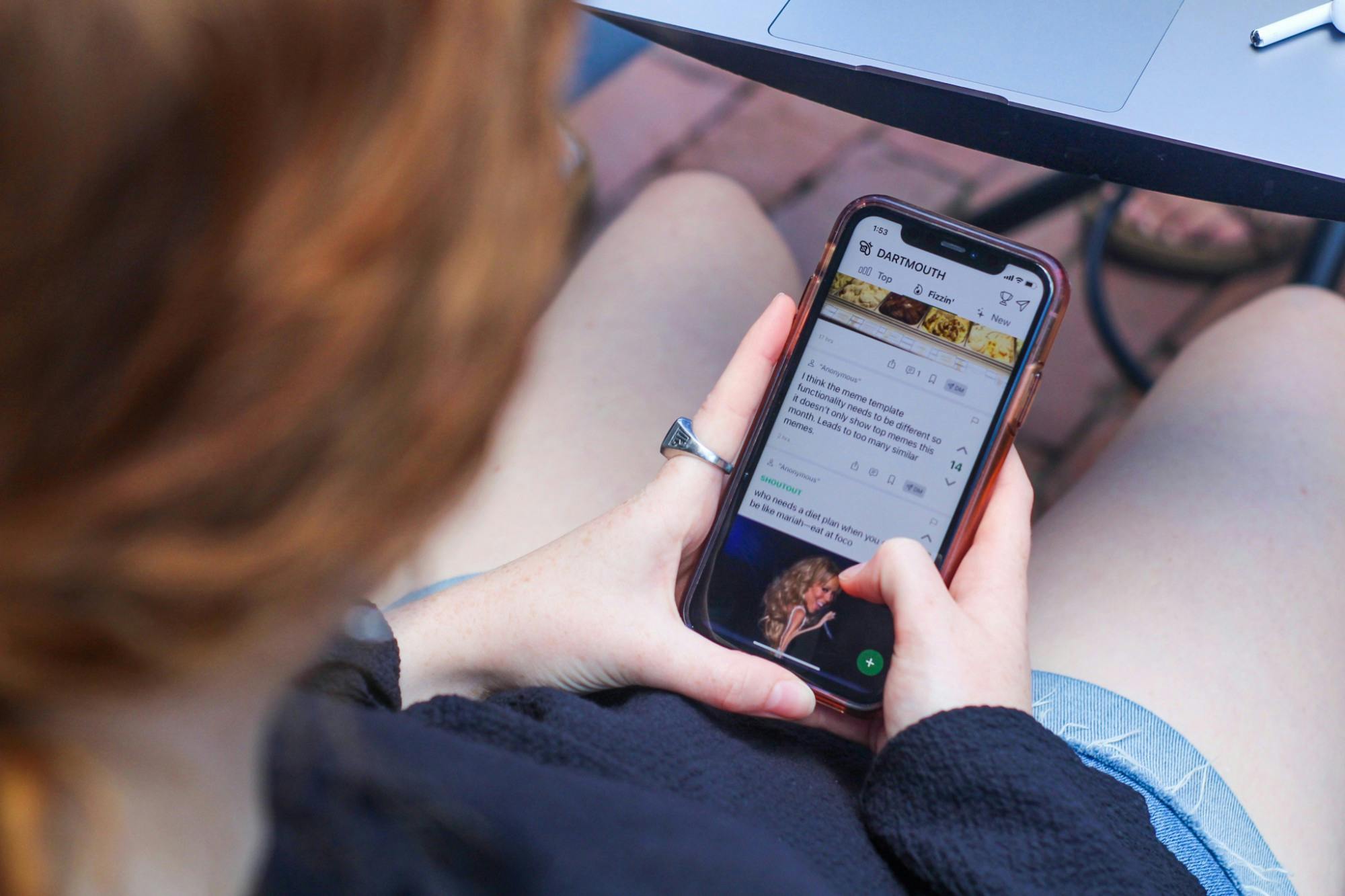On June 28, Dartmouth became the latest college community to download Fizz, a social media platform that allows users to engage in anonymous discussion. Co-founded by Teddy Solomon and Ashton Cofer, two sophomores from Stanford University, the app is comparable to Librex, another social media platform with anonymous forums, which abruptly shut down on Feb. 17.
According to Solomon, he and Cofer took a leave of absence from Stanford in December of 2021 after raising a “seven figure seed” funding. Solomon said they created Fizz as a place for students to discuss events on campus, confessions, crushes and anything else that comes up.
“Fizz’s drive to fill a void in social media and create authentic social media is what is going to lead us to success, no matter how many copycats show up in the space,” Solomon said. “We’ve got the passion and the mission, and we’re going to make sure that every college student is using Fizz.”
During the launch of the app at Dartmouth on June 29, students received donuts in exchange for downloading the app and bucket hats if they promoted it across social media, Solomon said.
Isabella Hochschild ’25 wrote in a statement to The Dartmouth that she believes that other anonymous platforms, such as Flok, Sidechat and Pantake – which have come to Dartmouth since the end of Librex – have not been as widely adopted by students as Fizz has.
“In the first day and a half, [around] two-thirds of people currently on Dartmouth’s campus downloaded the app,” Fizz ambassador John Renda ’24 said.
Other schools that participate on Fizz include Arizona State University, Chapman University, Pepperdine University, Rutgers University and University of Texas, Austin. Unlike Librex, which enabled messaging between multiple college communities, students on Fizz cannot interact with students outside of their institution.
Solomon said he thinks Fizz has received a warm reception because the anonymity of the app might decrease social anxiety for some users. Solomon said that social media platforms such as Instagram and Snapchat can have negative impacts on users’ mental health because users often only show the highlights of their lives, whereas Fizz aims to uncover the daily thoughts of college students and enable more “authentic connections.”
“What’s beautiful about these communities is the intimacy, and the fact that you know who is in the community – it’s everybody around you, everybody you go to school with – you just don’t know who is who in the community [because it’s anonymous],” Solomon said.
Lead ambassador for the app, Alina Chadwick ’24, compared the aim of Fizz to the purpose of sophomore summer – which is to bring the college community closer together.
Renda said he believes anonymous platforms have been popular with the Class of 2024 as a result of COVID-19 limitations on gatherings during their freshman year. It was in this “restrictive” environment that some students used Librex to connect with people, Renda explained. Solomon added that COVID-19 restrictions on Stanford’s campus sparked the idea for Fizz due to a similar desire to communicate with his fellow students across campus.
The beta version of Fizz was tested in 2021 by nine people living in the same house. Later, another version of the app was tested at Cornell University before being shut down to incorporate community feedback. Finally, the app was released to Stanford students, where 7,000 users joined.
According to Solomon, moderators are interviewed with an emphasis on objectivity based on Fizz community guidelines. Solomon also said users that engage in doxxing — the unwanted identification of users through their initials or class year — will be removed from the platform. Renda explained that features such as pseudonyms also make it easier for users to keep track of their posts, whereas students were entirely anonymous on Librex.
TJ Parekh ’24 said he liked how the app seems to be regulating hate speech, as he feels that this is a “good and important” initiative. However, he said the app has not been effective at preventing doxxing.
“It feels less anonymous,” he said. “I know particular names have been mentioned on the app.”
Parekh added that the app seems more “artificial” than Librex because he believes that “bots” are increasing upvotes on discussion threads to make it seem like the app has more users than it does.
“On Librex, it would [have been] crazy if somebody had 50 upvotes,” Parekh said. “With this app, [almost] every single post has 400 votes, which almost ruins the effect of engaging with the app.”
John Renda ’24 is a member of The Dartmouth arts staff.
Correction appended (July 8, 1:20 p.m.): A previous version of this article misspelled Teddy Solomon and Ashton Cofer's last names. The article has been updated.

Arizbeth Rojas ’25 is a managing editor of the 181st directorate from Dallas, TX. When she’s not listening to DJ Sabrina the Teenage DJ or planning her next half marathon, you can find her munching on a lox bagel.




